Sustainability and Responsible Banking
BBVA has a different way of doing banking based on the Purpose of "To bring the age of opportunity to everyone” guided by solid corporate values -"Customer comes first," "We think big" and "We are one team"- with the aim of having a positive impact on the lives of people, companies and society as a whole.
BBVA has a long history of committing to sustainability, which began when it adhered to the United Nations Global Compact in 2002, having played a leading, standout role in defining a new, more sustainable banking model.
It is a commitment to a responsible and sustainable approach to banking, whereby BBVA seeks to create long-term value, shared with all stakeholders (customers, employees, shareholders, suppliers and society as a whole), and is reflected in the Bank's various different corporate policies and regulations, especially in the Corporate Social Responsibility Policy (hereinafter CSR), updated in 2020, and in the General Sustainability Policy, also approved by BBVA's Board of Directors in 2020, which defines and sets out the Group's general principles and main management and control objectives and guidelines for sustainable development, seeking to achieve balanced economic development, social development and environmental protection.
In 2019, BBVA carried out a strategic reflection process to further expand its transformation and adapt to the biggest trends changing the world and the financial industry. Two of the main trends identified are the fight against climate change and the growing relevance of social inclusion.
BBVA is aware of the key role that banking plays in this transition toward a more sustainable world through its financial activity, and it has adhered to the Principles for Responsible Banking promoted by the United Nations, the Katowice Commitment and the Collective Commitment to Climate Action, and is keen to play a central role, as demanded by society.
The creation of the Global Sustainability Office (GSO) in 2020 has enabled all sustainability initiatives to be promoted and coordinated within the Group, relying on the support of the most senior executive managers of the Bank's various areas at a local level.
Sustainability and responsible banking milestones and initiatives
The commitment to sustainable and responsible growth is one of BBVA's main initiatives, reflected in the Group's second strategic priority: "Helping our customers transition toward a sustainable future." One line of action in this regard is the 2025 Pledge, whereby BBVA has committed to mobilizing €100,000m between 2018 and 2025 in green financing, sustainable infrastructure and agribusiness, financial entrepreneurship and inclusion, and other sustainable mobilization. During 2020, BBVA mobilized €20,306m, representing a cumulative total of €50,155m mobilized since 2018. This means it has achieved half of its sustainable funding target for the period 2018–2025 one year ahead of schedule.
BBVA has become one of the most active banks in terms of issuing green bonds since its framework for issuing SDGlinked bonds was published in 2018. In 2019, the Bank issued a second green bond for€1,000m, the largest issue to date by a Eurozone entity, in addition to issuing the first structured green bond using blockchain technology. In May 2020, BBVA was the first private financial institution in Europe to issue a COVID-19-related social bond and, two months later, the Bank was the first financial institution in the world to issue contingent-convertible perpetual bonds ("CoCos") considered as green bonds worth €1,000m, earmarked to finance eligible green assets in BBVA's portfolio, diversified in assets from various different green sectors (energy efficiency, renewable energy, sustainable transport, waste management and water management). According to Bloomberg, BBVA is the eighth most active bank (2018–2020) worldwide, the fourth in Europe and the first in Spain.
Among the financing initiatives promoted during the first quarter of 2021, BBVA has achieved its commitment to offer a sustainable alternative for all its products in Spain to retail and wholesale customers. BBVA was also the global coordinator and structuring bank for issuing the largest hybrid bond in history. BBVA's leadership in terms of sustainability resulted in the Bank being recognized by Global Finance magazine as the world's best investment bank in sustainable financing at the Global Finance Best Investment Bank Awards.
In 2020, BBVA also achieved all the objectives of its Global Eco-Efficiency Plan 2016–2020 and its environmental footprint showed very good progress compared to 2019. Notably, BBVA achieved net-zero CO 2 emissions in 2020. This objective has been achieved by offsetting the entire carbon footprint through CO 2 mitigation projects that also have a positive impact on the local communities in which they are implemented. This constitutes further progress in the framework of its commitment to align its activity with the Paris Agreement and reduce both direct and indirect emissions. Furthermore, work is under way on the Global Eco-Efficiency Plan 2021–2025, which will include new objectives aimed at reducing and neutralizing its environmental footprint.
With regards to its indirect environmental footprint, the Group announced in 2021 that it will reduce its exposure to coal-related activities to zero (by ceasing to fund companies in such activities) by 2030 in developed countries, and by 2040 in other geographical areas. This decision is aligned with the Intergovernmental Panel on Climate Change (IPCC)'s proposal to limit the rise in temperature to a maximum of 1.5ºC and the goal of achieving a carbon-neutral economy by 2050.
BBVA has recently taken an additional step in its ambition for sustainability and, at its General Shareholders' Meeting on April 20, 2021, announced its Net Zero 2050 commitment, i.e., its commitment to net-zero carbon emissions in 2050, considering both direct and indirect emissions, the latter of which include the emissions of customers financed by the Group. This is a very important milestone, which involves aligning with the Paris Agreement's most ambitious scenario, namely limiting the rise in temperature to 1.5°C compared to pre-industrial levels. Through this milestone, BBVA accelerates the Paris Agreement’s baseline scenario of 2ºC by 20 years. This commitment also has implications for BBVA and for its customers in all sectors, who it will support in their transition toward a more sustainable future through concrete plans and objectives.
BBVA remains highly committed to diversity and inclusion in all forms, including this aspect within its strategic priorities, and it encourages them through multiple initiatives in the geographic areas in which it operates. In this context, BBVA has notably been recognized as one of the 30 most exceptional companies in the world with the Gallup "Exceptional Workplace 2021" Award. This award distinguishes organizations committed to developing their workforce's human potential. BBVA's efforts to promote diversity have earned it a place in the Bloomberg Gender-Equality Index for the fourth consecutive year, a ranking of the 100 companies worldwide with the best practices in gender diversity. BBVA is also a signatory to the European Diversity Charter and the United Nations Women's Empowerment Principles. What's more, the UN selected one of BBVA's initiatives, "Work Better, Enjoy Life," to create a case study in this regard and include it on its website relating to best practices on diversity and inclusion within the Women's Empowerment Principles (WEP) program.
Through its social programs, BBVA acts as a driver of opportunity for people, seeks to generate a positive impact on their lives and delivers on its aim of making the opportunities of this new era available to those who face the most difficulty: the vulnerable. Throughout 2020, BBVA allocated €142.2m for investment in the community, from which more than 12 million people benefited, and which was earmarked to boost the main lines of action established in the Community Investment Plan (financial literacy, social entrepreneurship and knowledge, education and culture), as well as the BBVA Group's Social Response Plan to address the effects of COVID-19.
Among the initiatives developed in the first quarter of 2021, the project "Online Education," promoted by BBVA and the Foundation Against Drug Addiction (FAD), is particularly notable as it includes a set of actions aimed at education in order to alleviate the serious consequences that the COVID-19 crisis is having on the education community. Its priorities include: school adaptation, bridging the digital gap, supporting vulnerable families, and bridging the access gap due to lack of available equipment and ability to connect online.
Furthermore, for the second consecutive year, the Organisation for Economic Co-operation and Development (OECD) has recognized the Microfinance Foundation's work as the most important private philanthropic initiative in Latin America and the second most important worldwide, distinguishing it as the first foundation in the world to contribute to progress in gender equality.
Within the framework of transparency, BBVA has committed to disclose essential environmental, social and governance (ESG) aspects in a consistent and standardized manner. In this regard, together with the publication of the first TCFD report in November 2020, BBVA was one of the first entities in the world to support the "Measuring Stakeholder Capitalism" initiative by the World Economic Forum (WEF)'s International Business Council (IBC) and publish the level of fulfillment with its metrics. The Bank also published the level of alignment with the Sustainability Accounting Standards Board (SASB)'s Commercial Banks metrics for the first time.
BBVA's participation in sustainability indexes
BBVA is also present in various international sustainability indexes or Environmental, Social and Governance (ESG) indexes, which evaluate companies' performance in these areas. Most notably, in 2020 BBVA ranked first among European banks and second worldwide in the Dow Jones Sustainability Indices (DJSI).
BBVA is member of the following sustainability indices3:
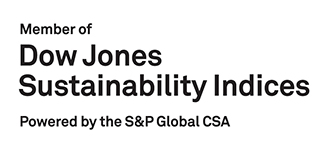
Listed on the DJSI World (2nd in the world) and Europe DJSI (1st in the European banking)
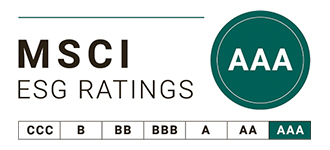
Listed on the MSCI ESG Leaders Indices. (Rating AAA)
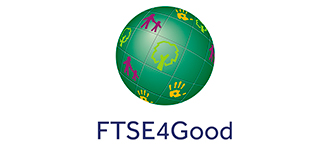
Listed on the FTSE4Good Index Series
(Score 4,4/5)
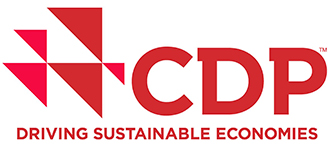
Score A-
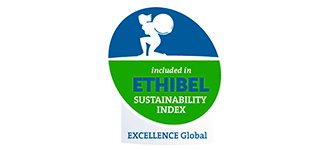
Listed on the Ethibel Sustainability Excellence Europe y Ethibel Sustainability Excellence Global indices
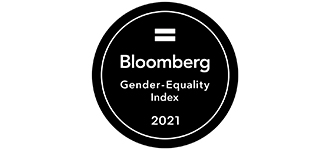
Listed on the Bloomberg Gender-Equality (Score 77,29/100)
3 The inclusion of BBVA in any MSCI indices and the use of the logos, trademarks, service marks or index names does not constitute the sponsorship or promotion of BBVA by MSCI or any of its subsidiaries. The MSCI indices are the exclusive property of MSCI. MSCI and the MSCI indices and logos are trademarks or service marks of MSCI or its subsidiaries
Measures taken by BBVA in response to COVID-19
From the outset of the crisis caused by COVID-19, BBVA has focused its efforts on protecting health and supporting its employees, customers and society as a whole. One year on, it continues to do so, staying by its customers' side for as long as the pandemic persists, and throughout the recovery phase too.
In this context, at the 2021 General Shareholders' Meeting, which was held entirely virtually due to the exceptional circumstances arising from the COVID-19 pandemic and in order to protect the health and safety of shareholders, employees and other persons involved in said meeting, BBVA has replaced the traditional shareholders' gift with a solidarity contribution to help alleviate the effects of COVID-19 on the most vulnerable sectors of the population. The shareholders themselves voted on which area of impact they wanted to send their donation (social inclusion, education, health and dependency).
